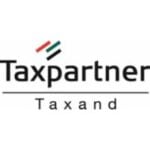-
Is it necessary for a taxpayer to register with the tax authority? Are separate registrations required for corporate income tax and value added tax/sales tax?
Business start and professional activity. When a business activity commences in Germany—commercial, agricultural/forestry, or the establishment of a permanent establishment—you must promptly notify the competent tax office. In practice this occurs via the electronic onboarding questionnaire (Fragebogen zur steuerlichen Erfassung), usually within one month of starting operations. Freelancers also notify their tax office directly. The form captures core data (legal form, partners/shareholders, managing directors, bank account, expected turnover and profits, payroll intentions), preferred assessment periods, and whether advance payments should be set. Relocations, changes of legal form, new permanent establishments, and closures must be reported as they occur so assessments, advance payments, and correspondence details remain correct.
Separate tax registrations. The onboarding process covers corporate income tax (CIT/KStG), trade tax (GewStG), and VAT (UStG), yet VAT administration is institutionally and procedurally separate from direct taxes. A local VAT tax number (USt-Steuernummer) is assigned by the Finanzamt. If you intend to conduct intra‑EU supplies or services, you must additionally obtain a VAT identification number (USt‑IdNr.) from the Federal Central Tax Office (BZSt). The USt‑IdNr. uniquely identifies the entrepreneur in EU cross‑border trade and is generally required to apply reverse charge, verify customers, and prepare EC Sales Lists (Zusammenfassende Meldungen).
VAT entrepreneur status and timing. Entrepreneur status for VAT begins once outwardly perceptible activity directed at making taxable supplies starts—even in preparatory phases (e.g., leasing premises, ordering equipment). This allows input VAT deduction if the intention to make taxable supplies is sufficiently evidenced. Each entrepreneur normally receives one USt‑IdNr. per legal entity. Practical tip: prepare a short ‘business plan’ and supporting evidence to substantiate VAT-intended use if you seek input VAT during pre‑revenue stages. Common pitfalls include late onboarding (which can delay tax numbers), using private accounts for business expenses (complicating input tax deduction), and omitting permanent establishments in other Länder, which can affect local trade tax allocation.
-
In general terms, when a taxpayer files a tax return, does the tax authority check it and issue a tax assessment – or is there a system of self-assessment where the taxpayer makes their own assessment which stands unless checked?
Core assessment model. Germany primarily relies on administrative assessment: the tax office issues a formal assessment notice (Steuerbescheid; AO §§155 ff.) based on filed returns, third‑party data, and risk analytics. The notice states the assessed amount, reasoning references, and legal remedies. Importantly, even automated assessments are administrative acts with full legal effect and can be appealed like manually issued notices.
Self‑assessment regimes. Certain taxes operate via Steueranmeldung (tax registration/return treated as an assessment under reservation of review): notably VAT advance returns and annual VAT returns (UStG §18), wage tax remittances (EStG §41a), and some withholding regimes. The legal fiction means your filing is deemed assessed when submitted; however, if a refund or reduction results, this equivalence takes effect only once the tax office consents (no special form required). Payments are due on fixed statutory dates; late submission or late payment triggers surcharges even if a formal notice has not yet been issued.
Automation and risk selection. The tax administration uses risk filters, cross‑checks (e.g., wage statements, capital income reports, EU VIES confirmations), and big‑data reconciliation to validate declarations. Low‑risk cases may be processed fully automatically, freeing resources for outliers. Practical implication: consistent data across filings (VAT, wage tax, CIT) and third‑party reports reduces queries and audit probability; discrepancies should be explained proactively in the return’s free‑text fields.
-
Can a taxpayer amend the taxpayer’s return after it has been filed? Are there any time limits to do this?
Duty to correct (AO §153). If you discover after filing that a declaration was incorrect or incomplete and this could lead to a tax shortfall (or has done so), you must correct it without culpable delay. The duty applies broadly—to tax returns, advance notifications, withholding filings, and to applications that influenced an assessment (e.g., exemption certificates). The correction should detail the error, quantify the tax impact, and include amended schedules or working papers. Where multiple periods are affected, provide a period‑by‑period reconciliation to ease processing and minimize penalties.
Timing and process management. Notify the authority immediately if you need time to reconstruct records (e.g., lost invoices, system migration). Request a reasonable deadline and outline the steps being taken. Keep a dated log of efforts; transparency supports mitigation of surcharges. If the standard assessment period is close to expiring, ask the tax office to keep the period open (e.g., by issuing a provisional assessment) while you finalize data.
Post‑assessment remedies. Within one month of receipt of a tax assessment you may file an objection (Einspruch), preserving rights while you correct figures. After an assessment becomes final, changes require statutory gateways (obvious errors under AO §129; reservation/provisional assessments under §§164/165; new facts/evidence under §§172–177). Where intent is not involved, prompt self‑initiated corrections generally mitigate administrative penalties; if intent cannot be excluded, evaluate a criminal self‑disclosure route in parallel (see #7).
-
Please summarise the main methods for a tax authority to challenge the amount of tax a taxpayer has paid by way of an initial assessment/self-assessment.
Desk review and information demands. The tax office may request books, records, electronic data, contracts, transfer pricing documentation, and explanations (AO §§88, 90, 93). Requests should state what is sought and for whose taxation. Provide complete, structured responses and highlight how figures map to returns. Where voluminous, propose staged delivery and provide data dictionaries for exports.
External audits (Betriebsprüfung). A formal audit order specifies periods and taxes (AO §§193–203). Audits typically begin with a planning meeting, a request list (Anforderungsliste), and a review of the internal control system. The auditor may work on‑site or remotely and can expand scope where new risks emerge. Maintain an audit log capturing questions asked, data provided, and agreements reached to avoid misunderstandings and facilitate a factual agreement if needed.
Unannounced checks. The VAT spot check (Umsatzsteuer‑Nachschau; UStG §27b) and the cash inspection (Kassen‑Nachschau; AO §146b) permit unannounced visits during business hours to verify VAT circumstances or cash‑register compliance. These may transition into a full audit upon formal order. Ensure front‑office staff are trained on access rights, contact persons, and document preservation steps when officials appear.
Legal change tools. Authorities can issue assessments under reservation of review, make provisional assessments for disputed questions of law/fact, correct obvious errors, and revise assessments based on new facts or binding decisions (e.g., higher court judgments). Where a position is uncertain, consider requesting a provisional assessment to avoid later limitation issues while preserving the ability to amend.
-
What are the time limits that apply to such challenges (disregarding any override of these limits to comply with obligations to relief from double taxation under a tax treaty)?
General limitation framework. The standard period for assessing or changing taxes is four years (AO §169). It is extended to five years in cases of reckless understatement (leichtfertige Steuerverkürzung) and to ten years in cases of intentional tax evasion (Steuerhinterziehung). The period generally begins at the end of the calendar year in which the tax arose and the return was filed—or would have been filed—subject to special triggers for withholding taxes and self‑assessments.
Suspensions and extensions (Ablaufhemmung; AO §171). The expiry of the assessment period is suspended by various events: the announcement of an external audit (for the taxes/periods covered), pending objection or court proceedings, criminal tax investigations, mutual agreement procedures, and provisional assessments. For audit‑based suspension, a statutory cap applies: it ends at the latest five years after the end of the year in which the audit order was announced, unless enumerated exceptions apply (e.g., delays attributable to international information exchange or taxpayer‑requested postponements).
Practical guidance. Track limitation dates in a register per tax/period and reconcile against audit orders and objections. If you expect a complex adjustment after the ordinary period would expire, seek a provisional assessment to keep the period open. Conversely, where you consider an issue closed, resist attempts to extend scope without legal basis and document all events that may start or stop the clock.
-
How is tax fraud defined in your law?
Tax evasion (AO §370) occurs where a person intentionally provides incorrect or incomplete information to tax authorities, withholds required information, or omits required tax stamps/marks, and thereby causes taxes not to be assessed, to be assessed too low, or to be assessed late, or obtains unjustified tax advantages (e.g., refunds, loss carryforwards). Attempt is punishable. Intent includes conditional intent; negligence does not suffice for §370 but may constitute a regulatory offense under AO §378.
Penalties and serious cases. The basic penalty range includes fines or imprisonment up to five years; in particularly serious cases, imprisonment from six months to ten years. Seriousness indicators include evasion in large amounts (commonly around €50,000 per case law), use of forged or substantially falsified documents, organized schemes, abuse of authority, or persistent repetition. Courts assess culpability holistically, including cooperation, restitution, and compliance culture.
Result‑oriented nature and completion. The offense is consummated upon reduction of tax or obtaining an unjustified advantage; late assessment constitutes a reduction. Participation (aiding, abetting) and responsible officers’ liability are possible. Companies can face confiscation of proceeds and administrative consequences even where criminal sanctions target individuals.
-
How is tax fraud treated? Does the tax authority conduct a criminal investigation with a view to seeking a prosecution and custodial sentence?
Investigation mechanics. Indications of evasion typically trigger criminal investigation by the Steuerfahndung, often with the public prosecutor. Investigative measures include searches of business and private premises, data imaging, seizures, interrogation of staff and third parties, and requests for information from banks and platforms. Early implementation of a litigation hold, secure communication channels, and a dedicated response team is essential to protect rights while cooperating appropriately.
Self‑disclosure (AO §371) and blocking grounds. A complete, timely, and unreserved self‑disclosure covering all non‑time‑barred offenses of a tax type—typically the last ten years—can restore impunity, provided it is filed before blocking events (e.g., audit announcement, commencement of investigation, or discovery of the offense by authorities). All taxes owed must be paid promptly together with statutory interest; in especially serious cases, an additional surcharge under AO §398a may apply. Partial disclosures that omit periods or tax types risk being ineffective and may aggravate sanctions.
Sentencing practice and mitigation. Serious cases can lead to custodial sentences. For first‑time offenders, full cooperation, swift payment, robust remediation, and implementation of a compliance management system may justify a suspended sentence depending on the facts. Companies should document remedial steps (policy updates, training, enhanced controls) to support leniency in associated administrative or criminal proceedings.
-
In practice, how often is a taxpayer audited after a return is filed? Does a tax authority need to have any justification to commence an audit?
Risk‑based selection. Audit frequency correlates with turnover, balance‑sheet totals, number of employees, sector, and qualitative risk indicators (e.g., persistent losses, cash‑intensity, complex financing, cross‑border transactions). Large enterprises are routinely and continuously audited; SMEs are examined periodically; purely domestic professionals with simple affairs are audited less often. New businesses may face VAT existence checks to combat carousel and refund fraud.
Legal basis and proportionality. For businesses, audits can be ordered without specific suspicion (AO §193). The scope must be proportionate to the risk profile and period selected. VAT spot checks and cash inspections are expressly unannounced. Keep a contemporaneous file of all submissions and discussions; where scope creep occurs, ask for a written expansion order and record the rationale.
Practical expectations. Cross‑border activities, platform‑based sales, crypto involvement, and supply‑chain industry profiles tend to increase audit probability. Document eligibility for exemptions (e.g., intra‑EU supplies) and retain transport proofs and customer validation records; weaknesses here frequently drive fieldwork.
-
Does the tax authority have to abide by any standards or a code of conduct when carrying out audits? Does the tax authority publish any details of how it in practice conducts audits?
Conduct and due process. Audits are governed by statutory procedure and administrative guidance. Auditors act under the official investigation principle and must examine both favorable and unfavorable facts. Proportionality applies to all measures, including data scope, on‑site presence, and sampling. A written audit order and an opening meeting typically set expectations and communications protocol.
GoBD and digital access. The GoBD (administrative guidelines) set requirements for electronic record‑keeping, immutability, traceability, and timely access. Three access models are recognized: read‑only access in your systems (Z1), provision of machine‑readable exports (Z2), and on‑site use of your systems by the auditor (Z3). Prepare IDEA/CSV exports, master data lists, and documentation of your accounting system, including process narratives and role rights. Failure to provide orderly access may justify estimates of tax bases.
Unannounced VAT spot checks. The Umsatzsteuer‑Nachschau is legally unannounced; officials may enter business premises during business hours to verify VAT facts (e.g., existence, invoice content, customer validation, refund circumstances). Where material concerns arise, a formal external audit can be ordered immediately. Train reception staff on verification of IDs, immediate escalation to the tax function, and document hold procedures.
-
Does the tax authority have the power to compulsorily request information? Does this extend to emails? Is there a right of appeal against the use of such a power?
Scope and limits. Taxpayers and other persons must provide information necessary to establish tax facts (AO §§90, 93, 97). This extends to books, records, business papers, and electronic documents—including relevant emails and messaging data—where material to taxation. Requests must identify the subject matter and the taxation concerned; blanket ‘fishing expeditions’ are impermissible. Professional secrecy, data‑protection obligations, and fundamental rights must be respected.
Form of requests and responses. Requests may be issued in writing or electronically and may summon individuals to the tax office. Respond comprehensively and within deadlines; if the scope is excessive or technically onerous, propose reasonable formats, phased delivery, and secure transfer channels. Provide a cover memo mapping requested items to the response package and stating any privileged or legally protected material withheld with justification.
Remedies. Disproportionate or unlawful requests can be challenged by objection or, where necessary, via protective applications to the Fiscal Court. Always preserve rights while cooperating: comply with clearly lawful parts and explain refusals with reference to necessity, suitability, and proportionality. Maintain a log of what was requested, provided, and withheld, together with legal bases.
-
Can the tax authority have the power to compulsorily request information from third parties? Is there a right of appeal against the use of such a power?
Third‑party data sources. Banks, employers, digital platforms, payment service providers, and other intermediaries can be required to provide taxpayer‑relevant data (AO §93). Collective or group requests are permissible where individuals are not identifiable ex ante but objective criteria can be stated and sufficient cause exists (e.g., platform sellers above certain thresholds).
Safeguards and subsidiarity. As a rule, the taxpayer should be approached first unless ineffective. Requests must be necessary, suitable, and proportionate. Professional secrecy and statutory privileges (e.g., medical confidentiality) limit the scope. Data protection considerations inform formats, minimization, and retention. Where sensitive trade secrets are implicated, request confidentiality measures or in‑camera handling at court.
Appeal options. Unlawful or disproportionate third‑party demands can be contested by the taxpayer or the third party, with courts reviewing legality, proportionality, and discretion. In parallel, communicate with the authority to narrow scope or agree sampling approaches to reduce burden while meeting legitimate information needs.
-
Is it possible to settle an audit by way of a binding agreement, i.e. without litigation?
Factual agreements (tatsächliche Verständigung). Where material facts are uncertain or burdensome to evidence, the tax office and taxpayer may conclude a documented factual agreement. It binds both sides as to the facts agreed but not as to the legal consequences; it must reflect a plausible view of reality and cannot produce obviously incorrect results. Use this tool to resolve quantification issues (e.g., apportionment keys, stock differences) or to crystallize outcomes of sampling tests.
Binding promises after audits. After conclusion of an audit, taxpayers may seek binding promises regarding the future treatment of audited fact patterns. These are distinct from general binding rulings on planned future arrangements (verbindliche Auskunft, AO §89(2)). Their proper documentation and precise framing are key; they typically bind the tax office for future periods absent material change in facts or law. Where long‑term certainty is needed, consider a binding ruling in addition to, or instead of, a promise.
Practice tips. Document the factual uncertainties, the range of plausible outcomes, and the rationale for the agreed number. Ensure management approval and legal review before signing. Capture the agreement in the audit report and assessment notes to facilitate consistent treatment by subsequent case handlers.
-
If a taxpayer is concerned about how they are being treated, or the speed at which an audit is being conducted, do they have any remedies?
Early dialogue. Many process frictions can be resolved through structured communication with the audit lead and, if needed, the audit manager. Table a written agenda, clarify sequencing, and agree realistic response times on both sides. Where specific measures appear unlawful or disproportionate, register your objection promptly and request a reasoned written position.
Scope and pacing. If requests are excessive, propose narrowing scope to determinative issues or phasing delivery. Record delays caused by the authority (e.g., waiting for internal approvals or third‑country information) and keep a running timeline; this is useful for later applications concerning suspension of enforcement or cost allocation.
Inactivity actions and special remedies. If an objection or application remains undecided for an unreasonably long time without adequate justification, you may bring an inactivity action (Untätigkeitsklage) before the Fiscal Court—generally after six months. For unannounced checks that have ended (e.g., a concluded VAT Nachschau), procedural posture differs; declaratory actions may be appropriate to clarify legal issues raised during the check.
-
If a taxpayer disagrees with a tax assessment, does the taxpayer have a right of appeal?
Objection (Einspruch). You may challenge an assessment by filing an objection with the issuing tax office within one month of receipt (AO §355). The objection prevents formal and material finality, keeps the assessment period open for change, and allows you to request suspension of enforcement. State the decision contested, the extent of challenge, and the relief sought; detailed reasoning can often follow once the file is reviewed.
Effective objections. Include a concise factual background, disputed legal issues, calculation exhibits, and references to documents already on file. Where multiple issues exist, consider partial withdrawals once resolved to keep the remaining dispute focused. If the case hinges on a general legal question, propose a provisional approach pending higher‑court guidance and ask for a provisional assessment to avoid repetitive filings.
-
Is the right of appeal to an administrative body (independent or otherwise) or judicial in nature (i.e. to a tribunal or court)?
Two‑stage design. The first stage is administrative: the Einspruch is handled by the issuing tax office, which must review both facts and law and may fully remedy the contested decision. If the objection is rejected in whole or in part—or not decided within a reasonable time—you may proceed to the Fiscal Court (Finanzgericht) for judicial review under the FGO.
Judicial features. Fiscal Courts apply the official investigation principle, are not bound by the arguments of the parties, and can take evidence (documents, witnesses, experts). Proceedings typically include written exchanges followed by an oral hearing. Settlements are possible; where appropriate, courts may suggest narrowing issues or staying proceedings pending related test cases.
-
Is the hearing in public? Is the decision published? What other information about the appeal can be accessed by a third party/the public?
Public hearings. Fiscal Court hearings are generally public. Upon request or ex officio, the court may exclude the public for protection of trade secrets, privacy, or other compelling interests. Prepare public‑safe versions of slides and exhibits and have confidential annexes ready for restricted handling if necessary.
Publication and access. Decisions are usually published in anonymized form in official or commercial databases. Tax secrecy restricts third‑party access to files and sensitive information. Where a published decision could reveal sensitive facts despite anonymization, consider protective submissions and requests to limit descriptiveness in the written reasons.
-
Is the procedure mainly written or a combination of written and oral?
Combination in practice. Fiscal litigation blends detailed written submissions—setting out facts, legal analysis, and evidence—with an oral hearing where the court explores remaining disputes. Courts may hold preliminary discussions (Erörterungstermine) to focus the case and identify evidence needs. Ensure consistency between written and oral presentations; prepare witness outlines and exhibit indices for efficient reference during the hearing.
Official investigation principle. Although courts investigate ex officio, parties should not rely on the court to ‘find’ favorable facts. Provide structured evidence packs, highlight decisive legal tests, and propose a roadmap for resolving the case, including any questions suitable for referral to the CJEU in VAT matters.
-
Is there a document discovery process?
German fiscal procedure does not feature broad pre‑trial discovery. Instead, the court directs evidence‑gathering. It can order the tax office to produce the administrative file and can require parties to submit specific documents. Non‑compliance can lead to adverse inferences or estimates.
Evidence tools. The court may issue production orders, commission expert opinions (e.g., on transfer pricing, valuation, or IT/data integrity), and conduct inspections. Parties can request that specific evidence be taken and should motivate necessity and relevance. Where data volumes are large, propose sampling and provide data dictionaries to avoid misinterpretation.
-
Are witnesses called to give evidence?
Role of witnesses and experts. Witnesses are heard to establish facts not fully documented or where credibility is contested. Experts can assist the court in technical areas (valuation, DEMPE analyses, systems audits). Prepare witnesses carefully: limit testimony to personal knowledge, align with documents, and avoid speculation. Ensure experts receive complete instructions and data; incompleteness is a frequent cause of unfavorable opinions.
Practicalities. Provide a chronological bundle, highlight where testimony fits, and prepare succinct statements of expected evidence. Consider whether in‑person or video testimony is preferable given travel and scheduling constraints.
-
Is the burden on the taxpayer to disprove the assessment the subject of the appeal?
General allocation. Properly kept books enjoy a presumption of correctness (AO §158). Taxpayers must cooperate and substantiate reliefs and reductions, particularly in cross‑border contexts (AO §90). The authority bears the burden of proof for aggravating facts, such as establishing intent to trigger the ten‑year limitation period.
Estimates and their review. If records are deficient or duties to cooperate are breached, the authority may estimate tax bases (AO §162). Common methods include gross‑profit comparisons, cash‑to‑sales reconciliations, and net‑worth analyses. Courts review estimates for plausibility, internal consistency, and fairness; taxpayers should present alternative calculations and demonstrate why the authority’s approach overstates liability (e.g., unrepresentative samples, seasonality effects, or flawed benchmark selection).
-
How long does an appeal usually take to conclude?
Administrative phase. Objections often take several months, depending on caseload, complexity, and whether additional evidence must be gathered. Complex transfer pricing or VAT chain cases may require coordination with specialist units, extending timelines. Maintain a status tracker and request updates periodically; where appropriate, propose a partial decision on resolved issues to separate them from remaining disputes.
Court phase. First‑instance proceedings frequently last 12–24 months. Timelines extend where expert evidence is needed or where courts await related precedent. To keep momentum, respond promptly, suggest pragmatic narrowing of issues, and be ready to agree on facts not genuinely in dispute. Consider stays only where a determinative legal question will soon be resolved by higher courts.
-
Does the taxpayer have to pay the assessment pending the outcome of the appeal?
General enforceability. Taxes are typically enforceable despite objection or pending litigation (AO §361). Absent relief, payment must be made while the dispute proceeds. Non‑payment risks enforcement measures and surcharges.
Suspension of enforcement. You may apply for suspension of enforcement (Aussetzung der Vollziehung) with the authority or the court (AO §361; FGO §69) if there are serious doubts as to legality or if enforcement would cause undue hardship. Relief can be full or partial and may be conditioned on security. Coordinate suspension requests with cash‑flow planning and consider the interest implications if you later lose (or win). Keep the court informed if circumstances change materially.
-
Are there any restrictions on who can conduct or appear in the appeal on behalf of the taxpayer?
Before the Fiscal Court. Self‑representation is legally possible in first instance; however, complex matters typically warrant professional representation by a tax adviser or a lawyer experienced in fiscal litigation. Counsel can structure the record, frame legal theories, and manage evidence efficiently, which often influences outcomes and timelines.
Before the Federal Fiscal Court. Professional representation is mandatory (FGO §62). Select representatives with demonstrated experience in revision proceedings, as the focus shifts from fact‑finding to pure questions of law, admissibility thresholds, and procedural strategy (e.g., non‑admission complaints).
-
Is there a system where the “loser pays” the winner’s legal/professional costs of an appeal?
Court fees and cost shifting. In court, the losing party generally bears court costs (FGO §§135 ff.). The objection stage carries no court fees. Necessary out‑of‑pocket costs may be reimbursed under statutory rules, subject to reasonableness and necessity. Where each side partially prevails, costs are typically apportioned. Consider cost‑risk early and evaluate settlement options when litigation economics become adverse.
Budgeting and recovery. Maintain detailed time and disbursement records tied to procedural steps; this supports cost recovery applications. For large‑scale audits and litigation, establish a budget with milestones and decision gates (e.g., whether to seek expert evidence) to control spend.
-
Is it possible to use alternative forms of dispute resolution – such as voluntary mediation or binding arbitration? Are there any restrictions on when this alternative form of dispute resolution can be pursued?
Domestic ADR avenues. Germany offers limited ADR tools in tax. The principal non‑judicial instruments are factual agreements to resolve evidentiary uncertainty (see #12) and binding rulings (verbindliche Auskunft, AO §89(2)) for forward‑looking questions. Mediation is uncommon in tax controversies, though structured settlement discussions with audit leaders or litigation units may be productive in suitable cases.
Cross‑border relief. For double‑taxation disputes, Mutual Agreement Procedures (MAP) under bilateral tax treaties, the EU Arbitration Convention (for transfer pricing), and relevant EU dispute resolution mechanisms may be available. These can culminate in binding arbitration where applicable. Early alignment of domestic positions with MAP strategy is crucial to avoid inconsistent submissions; keep contemporaneous transfer pricing documentation synchronized with positions asserted.
-
Is there a right of onward appeal? If so, what are all the levels of onward appeal before the case reaches the highest appellate court.
Paths to the Federal Fiscal Court (BFH). From a Fiscal Court judgment, onward appeal (Revision) to the BFH requires admission—either granted by the Fiscal Court or via a non‑admission complaint (Nichtzulassungsbeschwerde) to the BFH. Admission is typically based on fundamental significance, need to ensure uniformity of case law, or procedural errors. Revision focuses on legal, not factual, questions; the factual findings below are largely binding.
Other avenues. In exceptional cases, constitutional complaints to the Federal Constitutional Court are possible where specific constitutional rights are implicated. In VAT matters, national courts may refer questions to the Court of Justice of the EU for preliminary rulings. Consider whether your case is a suitable ‘test case’ and coordinate parallel matters to benefit from precedent.
-
What are the main penalties that can be applied when additional tax is charged? What are the minimum and maximum penalties?
Administrative surcharges and interest. Late filing surcharges (Verspätungszuschläge; AO §152) accrue based on statutory formulas per commenced month of delay, subject to minimums/caps and typically referencing assessed tax net of prepayments/withholding in calendar‑year contexts. Late payment surcharges (Säumniszuschläge; AO §240) accrue at 1% per commenced month on the rounded outstanding amount, with short grace rules for very brief delays. Interest on differences (Zinsen; AO §233a) applies for under‑ and over‑payments under a distinct regime coordinated to prevent double interest.
Criminal and regulatory sanctions. Reckless understatement (leichtfertige Steuerverkürzung; AO §378) can trigger administrative fines. Intentional evasion (AO §370) exposes individuals to fines or imprisonment up to five years (six months to ten years in serious cases). Companies may face disgorgement/confiscation of advantages and reputational consequences. Early correction and cooperation materially influence the penalty outcome.
-
If penalties can be mitigated, what factors are taken into account?
Prompt correction and transparency. Timely voluntary corrections under AO §153 for non‑intentional errors significantly mitigate exposure and demonstrate a culture of compliance. Provide full quantification, supporting schedules, and a remediation plan addressing root causes (e.g., master data fixes, training, system enhancements).
Self‑disclosure for intentional conduct. Where intent cannot be excluded, evaluate a self‑disclosure (AO §371) before blocking events occur. Ensure completeness across all periods and taxes; pay all arrears and statutory interest within deadlines. In certain high‑amount cases, a surcharge under AO §398a may be required for effectiveness.
Cooperation and remediation. Maintain open communication with the authority, meet deadlines, and provide organized data. Demonstrate remedial measures such as implementing a tax compliance management system, improving segregation of duties, and documenting controls—factors that can weigh in your favor both administratively and in criminal contexts.
-
Within your jurisdiction, are you finding that tax authorities are more inclined to bring challenges in particular areas? If so, what are these?
Cross‑border and reporting regimes. Authorities continue to scrutinize cross‑border structures and DAC6/MDR hallmarks, as well as DAC7 platform‑economy reporting follow‑up. Ensure governance around reporting thresholds, documentation of decision trees, and retention of evidence supporting reporting or non‑reporting positions.
VAT supply chains and refunds. Expect verification of chain transactions, application of quick fixes (call‑off stock, chain allocation), and strict proof for zero‑rated intra‑EU supplies and exports. Refund claims are vetted for business purpose, invoice integrity, and customer validation; weak documentation attracts spot checks.
Transfer pricing and Pillar Two. Risk reviews increasingly focus on intangibles (DEMPE functions), financial transactions, and data lineage for Pillar Two/GloBE computations, including reconciliation from statutory accounts to consolidated data inputs. Crypto‑asset activity and classification (trading vs. investment vs. services) remains a developing audit theme.
-
In your opinion, are there any areas which taxpayers are currently finding particularly difficult to deal with when faced with a challenge by the tax authorities?
Transfer pricing complexity. Challenges include identifying and documenting DEMPE functions for intangibles, setting arm’s‑length pricing for intercompany financing and guarantees, and obtaining reliable comparables in niche markets. Contemporaneous, transaction‑level documentation with clear value‑chain narratives is essential. Where data are thin, justify methodology choice and sensitivity analyses.
VAT chain transactions and evidence. Correctly attributing the ‘moving supply’ in chains, applying zero‑rating, and meeting strict evidence standards (transport proof, customer VAT validation, correct invoicing) remain difficult—especially with drop shipments and platform logistics. Build checklists, automate VIES checks, and archive carrier confirmations and Incoterms correspondence.
GoBD and data access. Exporting audit‑friendly datasets, preserving immutability, and mapping process controls to data fields can be challenging, particularly after ERP changes. Maintain data dictionaries, version notes, and test exports annually. Cross‑border information requests require coordination with group functions while protecting confidential data through tailored disclosure strategies.
E‑invoicing and near‑real‑time reporting. As EU‑level initiatives progress, adapt systems and master data early. Pilot e‑invoicing workflows, validate structured formats, and align tax determination engines to minimize downstream corrections.
-
Which areas do you think will be most likely to be the subject of challenges and disputes in the next twelve months?
Transfer pricing scrutiny. Expect sustained focus on intangibles and DEMPE analyses, financing and cash pooling policies, business restructurings, and alignment of tax outcomes with people functions and risks. Authorities may increasingly leverage international risk assessment tools and exchange of information to select cases.
Withholding tax relief and treaty shopping. Relief at source and refund claims will face heightened review of substance, beneficial ownership, and business purpose in holding/financing structures. Ensure documentation of decision‑making, personnel, premises, and risk assumption aligns with the claimed treaty benefits.
Crypto and digital assets. Key questions include revenue character (trading vs. services), valuation, and reporting. Authorities are likely to link platform data and payment trails with personal and corporate returns. Implement robust onboarding/KYC, wallet reconciliation, and gain/loss tracking to withstand inquiries.
Supply‑chain VAT resilience. Focus will remain on attribution in chain transactions, export and transport proof, and anti‑fraud controls. Strengthen vendor/customer onboarding, automate VAT ID checks, and implement exception monitoring for atypical flows and pricing patterns.
Germany: Tax Disputes
This country-specific Q&A provides an overview of Tax Disputes laws and regulations applicable in Germany.
-
Is it necessary for a taxpayer to register with the tax authority? Are separate registrations required for corporate income tax and value added tax/sales tax?
-
In general terms, when a taxpayer files a tax return, does the tax authority check it and issue a tax assessment – or is there a system of self-assessment where the taxpayer makes their own assessment which stands unless checked?
-
Can a taxpayer amend the taxpayer’s return after it has been filed? Are there any time limits to do this?
-
Please summarise the main methods for a tax authority to challenge the amount of tax a taxpayer has paid by way of an initial assessment/self-assessment.
-
What are the time limits that apply to such challenges (disregarding any override of these limits to comply with obligations to relief from double taxation under a tax treaty)?
-
How is tax fraud defined in your law?
-
How is tax fraud treated? Does the tax authority conduct a criminal investigation with a view to seeking a prosecution and custodial sentence?
-
In practice, how often is a taxpayer audited after a return is filed? Does a tax authority need to have any justification to commence an audit?
-
Does the tax authority have to abide by any standards or a code of conduct when carrying out audits? Does the tax authority publish any details of how it in practice conducts audits?
-
Does the tax authority have the power to compulsorily request information? Does this extend to emails? Is there a right of appeal against the use of such a power?
-
Can the tax authority have the power to compulsorily request information from third parties? Is there a right of appeal against the use of such a power?
-
Is it possible to settle an audit by way of a binding agreement, i.e. without litigation?
-
If a taxpayer is concerned about how they are being treated, or the speed at which an audit is being conducted, do they have any remedies?
-
If a taxpayer disagrees with a tax assessment, does the taxpayer have a right of appeal?
-
Is the right of appeal to an administrative body (independent or otherwise) or judicial in nature (i.e. to a tribunal or court)?
-
Is the hearing in public? Is the decision published? What other information about the appeal can be accessed by a third party/the public?
-
Is the procedure mainly written or a combination of written and oral?
-
Is there a document discovery process?
-
Are witnesses called to give evidence?
-
Is the burden on the taxpayer to disprove the assessment the subject of the appeal?
-
How long does an appeal usually take to conclude?
-
Does the taxpayer have to pay the assessment pending the outcome of the appeal?
-
Are there any restrictions on who can conduct or appear in the appeal on behalf of the taxpayer?
-
Is there a system where the “loser pays” the winner’s legal/professional costs of an appeal?
-
Is it possible to use alternative forms of dispute resolution – such as voluntary mediation or binding arbitration? Are there any restrictions on when this alternative form of dispute resolution can be pursued?
-
Is there a right of onward appeal? If so, what are all the levels of onward appeal before the case reaches the highest appellate court.
-
What are the main penalties that can be applied when additional tax is charged? What are the minimum and maximum penalties?
-
If penalties can be mitigated, what factors are taken into account?
-
Within your jurisdiction, are you finding that tax authorities are more inclined to bring challenges in particular areas? If so, what are these?
-
In your opinion, are there any areas which taxpayers are currently finding particularly difficult to deal with when faced with a challenge by the tax authorities?
-
Which areas do you think will be most likely to be the subject of challenges and disputes in the next twelve months?



















